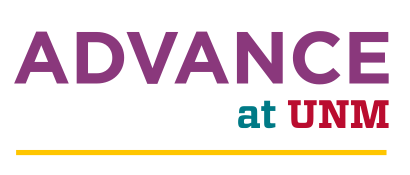Faculty Fanfare: Alok K. Bohara and Jingjing Wang

Two UNM economics professors are co-authors on a recently published journal article urging water economics to be taught as part of the larger economics curriculum.
Alok K. Bohara, a professor and the founding director of the Nepal Study Center at UNM, and Jingjing Wang, an associate professor and the associate director of the Water Resources Program at UNM, argue that water economics is a vitally important topic for students.
“Water scarcity and the availability of good quality water are major challenges facing many regions globally, and these topics warrant attention in economics; a discipline that studies the allocation of scarce resources,” they wrote in the article, Water and Economics: Why We Need and Ought to Teach Water Economics in the Modern Economics Curriculum, which was published in the journal Applied Economics Teaching Resources.
“Integrating water resources into the economics curriculum is essential for students to understand water-related issues, water distribution, and the implications of current water management policies on the future,” they wrote.
Even though some colleges and universities cover water economics, course information is generally limited and doesn’t take larger issues related to water into account.
Their paper provides an examination of the current state of water issues coverage in undergraduate and graduate courses across various institutions in the United States. A novelty of their investigation lies in analyzing how water topics are addressed at institutions located in different water-stressed regions via a text analysis of sample syllabi of water economics courses.
Their analyses “reveal consistent patterns of differing content taught in the different water stress regions, as well as variations in content between economics and non-economics disciplines. These findings suggest a need for the economics discipline to provide a more holistic understanding of water-related issues by incorporating not only the economic dimension of water, but also the policy, governance, sociological, and anthropological aspects of water use.”
In the paper, Bohara and Wang present several pedagogical approaches that are currently being applied to water economics teaching. Wang said options include having instructors from different disciplines (e.g., economics and environmental studies) to co-teach a course on water-related topics.
Among other things, the work proposes ways to incorporate the topic into the curriculum to improve students’ understanding of how basic economic theory, analysis, and real-world implications apply to water.
“Our findings suggest a need for the economics discipline to provide a more holistic understanding of water-related issues by incorporating not only the economic dimension of water, but also the policy, governance, technical, sociological, and anthropological aspects of water use,” Wang said.
Co-authors on the article include Mohammad Mashiur Rahman, Samrat B. Kunwar, Niraj Khatiwada and Mengqi Liu, who are all recent graduates from the UNM Economics doctoral program.
Along with those same co-authors and Swati Thapa, Bohara and Wang also recently co-authored another article in the same journal, suggesting water issues can best be taught through experiential learning environments.The paper highlights a problem-based learning undergraduate course, Econ 369 Problem-Based Learning Using Data Analytics, at UNM that combined classroom learning experience with community outreach and international research experience through a study abroad program.
Wang said high level and multidisciplinary support play a pivotal role in the movement toward a modern economics curriculum that includes a focus on water.
“Institutional support like the GUNM Grand Challenge initiatives and teaching fellowship programs like the UNM Student Experience Project (SEP) and Expanding Course-Based Undergraduate Research Experiences (ECURE) programs provides great opportunities for instructors to share ideas across disciplines and connect teaching and learning with global challenges like water issues,” she said.
